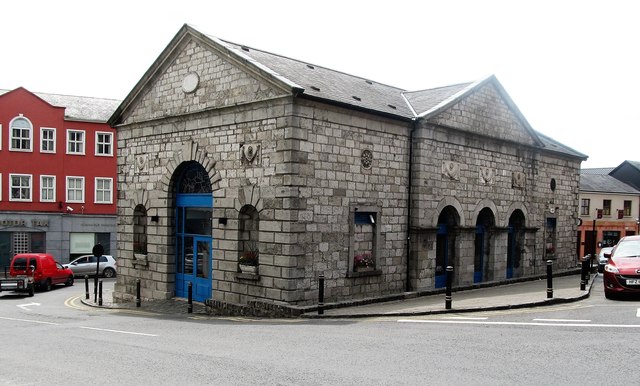If you’re renting in Ireland, you’ve likely heard the term Rent Pressure Zone, or RPZ, more than once. But what does it actually mean for you as a tenant? And how does it affect your rent, rights, and long-term plans?
In this guide, we’ll break down what an RPZ is, how it impacts rent increases, and how tenants can protect themselves in this changing landscape. Whether you’re reviewing your rental history, preparing your tenant resume, or considering a move, knowing whether you live in an RPZ is more important than ever.
What is a Rent Pressure Zone?
A Rent Pressure Zone (RPZ) is an area where rents are rising quickly and housing demand is high. The Irish government introduced RPZs to control spiralling rental costs and protect tenants from unsustainable increases.
If your area is designated as an RPZ, your landlord cannot raise your rent by more than:
- 2% annually, or
- The rate of inflation (as per the Harmonised Index of Consumer Prices), whichever is lower
RPZs cover many of Ireland’s major cities and towns, including parts of Dublin, Cork, Galway, and Limerick. They are updated regularly by the Residential Tenancies Board (RTB), so it’s important to check whether your area is now on the list.
You can do that using the RTB’s official RPZ lookup tool.
How Does Being in an RPZ Affect Rent Increases?
The key impact of RPZ designation is that it limits how much rent can increase. Here’s what that means in practical terms:
- Landlords must wait 12 months between rent reviews
- They must apply the legal RPZ rent calculation formula
- They must give tenants 90 days’ written notice of a rent increase
- The new rent must be clearly outlined and justified
If your landlord raises your rent beyond the cap, you can challenge it with the RTB.
For tenants using Tenantin.ie, tracking rent changes in your rental history makes it easier to identify invalid increases. It also helps you keep your profile transparent and up to date, which is valuable when applying for your next place.
Why RPZ Status Matters When Renting in Ireland

Being in an RPZ offers some protection, but it also comes with expectations. Both tenants and landlords must follow the rules. For example:
- Landlords must register each tenancy with the RTB
- Rent amounts must be recorded and consistent with RPZ limits
- Tenants can refer to these records if a dispute arises
As a tenant, this means you’re in a stronger position when negotiating, renewing, or challenging rental terms. It also helps you plan your finances more accurately, knowing that your rent cannot jump dramatically overnight.
Having a clear record of your rental terms and timelines stored in your tenant resume strengthens your credibility when applying for new accommodation, especially in competitive markets.
How to Know If Your Area Has Recently Become an RPZ
The RTB reviews and updates RPZ designations regularly based on factors such as:
- Local rent levels
- Housing supply and demand
- Income thresholds and affordability
Areas that were not previously included may be added as pressure builds. For example, suburban and commuter belt regions are increasingly being designated RPZs due to housing demand spilling beyond city centres.
Stay informed by:
- Checking the RTB updates quarterly
- Signing up for housing news alerts
- Using platforms like Tenantin.ie, which can support your search based on your preferences
If you’re subscribed to Tenantin’s On a Hunt premium feature, your dedicated account manager can help you stay ahead of these changes. Knowing RPZ status can impact which listings are most suitable for your budget and legal protection.
What If Your Landlord Doesn’t Follow RPZ Rules?
Unfortunately, some landlords may not follow the RPZ rules strictly. If you suspect your rent increase is unfair or illegal:
- Check your current rent and increase amount
- Use the RTB rent calculator to verify the legal increase
- Compare it against your rental history records
- Contact the RTB to file a formal dispute if needed
Tenantin makes it easier to gather the necessary documents by keeping your profile, and rental history in one place. When your records are organised, challenging an unfair increase becomes far less stressful.
How RPZs Affect Your Tenant Resume
Your tenant resume is your rental CV. It shows landlords that you’re organised, reliable, and informed. Including accurate rent payment history and references from previous RPZ tenancies shows you understand the system and have complied with it.
On Tenantin.ie, you can:
- Add landlord details and documentation
- Keep everything centralised in one free tool
- Download your tenant resume to share directly with landlords
This kind of preparation often makes you stand out in a competitive market. Landlords appreciate tenants who come ready with all the right documents and knowledge of rental law.
Why It Pays to Be a Proactive Tenant
Knowing your RPZ status is just one part of renting wisely in Ireland. By actively maintaining your records, preparing a strong tenant resume, and understanding your rights, you make renting a smoother experience for yourself.
Tenantin.ie supports tenants at every stage, with:
- A free tool to build your tenant profile
- Detailed rental history tracking
- Easy resume downloads for private landlord applications
- Premium “On a Hunt” service to boost your chances and provide personal support
Whether you’re staying put in an RPZ or preparing to move, you’ll have all the tools you need to take control of your rental journey.
RPZs Are a Tool – Use Them to Your Advantage

RPZs are designed to protect tenants from steep rent increases, but they only work if you know how to use them. Understanding whether your area is affected, keeping track of legal rent limits, and maintaining a solid rental history are key steps to staying ahead.
If you’re renting in Ireland, now is the time to double-check your area’s status and make sure your rent complies with the law. With platforms like Tenantin.ie, you can do all of this easily, while also preparing a professional tenant resume to improve your chances with future landlords.
Start building your tenant profile today
Frequently Asked Questions
What is a Rent Pressure Zone (RPZ)?
A Rent Pressure Zone is an area where rents are capped to prevent excessive annual increases. This regulation aims to provide stability and predictability in the rental market, making it more affordable for tenants.
How does an area become designated as an RPZ?
An area becomes an RPZ when it meets specific criteria set by the Housing Agency, including high rent levels and significant rental price inflation over time. This designation is intended to control rent increases in areas under pressure.
How can I check if my area is now an RPZ?
You can verify if your area is an RPZ by visiting local council websites or checking platforms like tenantin.ie, which provide updated information on RPZ designations.
What does being in an RPZ mean for my rent?
If you live in an RPZ, your landlord can only increase the rent by a limited percentage annually, typically capped at 2% or linked to inflation rates. This helps ensure that rent increases remain manageable for tenants.
Are all properties within an RPZ subject to the same rules?
Most properties within an RPZ are subject to rent caps; however, there are exceptions, such as new builds or substantially refurbished units. It’s essential to understand these nuances when negotiating leases.
What should I do if my landlord raises the rent beyond the cap?
If you believe your rent increase exceeds legal limits, you can seek advice from the Residential Tenancies Board (RTB) or consult resources on tenantin.ie, where you can find guidance on resolving disputes.
How often can my landlord increase rent in an RPZ?
In most cases, landlords can increase rent once every 12 months within an RPZ, adhering to the set cap. Always check your lease agreement and discuss any changes directly with your landlord.
Can my rent decrease if my area loses its RPZ status?
While rare, if an area loses its RPZ status due to changing market conditions, landlords may have more flexibility in setting rents. However, this doesn’t automatically mean rents will decrease.
Do I need to renegotiate my lease if my area becomes an RPZ?
Generally, existing leases remain valid even if your area becomes an RPZ. However, future rent reviews must comply with the new regulations, potentially requiring discussions with your landlord.
Where can I find more information about renting in Ireland?
For further details on renting and how regulations like RPZs affect you, visit tenantin.ie. This platform offers comprehensive resources and up-to-date information to help you navigate the rental market effectively.
Understanding these aspects of living in a Rent Pressure Zone can empower you as a tenant and ensure you’re informed about your rights and obligations under current housing regulations.



